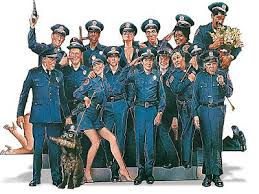The Importance of Police Academy Training

Introduction
The police academy serves as a pivotal institution in developing competent law enforcement officers. In a time when public trust in law enforcement is under scrutiny, the quality of training provided at police academies is more crucial than ever. Understanding the process and challenges faced by recruits can help illuminate the need for effective police training approaches.
Structure of Police Academy Training
Typically, police academy training encompasses a variety of components designed to equip recruits with the necessary skills and knowledge. This includes physical fitness training, legal education, firearms training, and coursework in community relations. Recruits undergo rigorous assessments to determine their readiness for the demands of modern policing.
Current Events in Police Training
Recently, several police departments across the United Kingdom have begun reevaluating their training protocols in response to calls for reform in policing. The College of Policing’s report on ‘Professionalizing Policing’ suggests enhancements in areas such as diversity training and mental health awareness. As part of this initiative, some academies are integrating crisis intervention training to better prepare officers for encounters involving individuals in distress.
The Role of Technology in Training
Moreover, advancements in technology have begun to play a significant role in police training. Virtual reality simulations are increasingly being used to create scenarios that officers may face on the job, allowing for practical experience in a controlled environment. Enhanced data analytics in physical training programs also help in monitoring the progress of recruits, ensuring that they meet the required standards.
Conclusion
As we look to the future, the importance of police academy training cannot be overstated. With ongoing reform and technological advancements, academies will play a crucial role in preparing a new generation of officers who are well-equipped to handle the complexities of modern law enforcement. The training not only shapes individual officers but also influences the wider community’s perception of law enforcement as a whole, making it a critical aspect of ensuring public safety and maintaining trust in policing.
